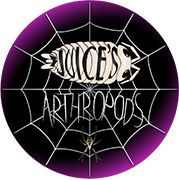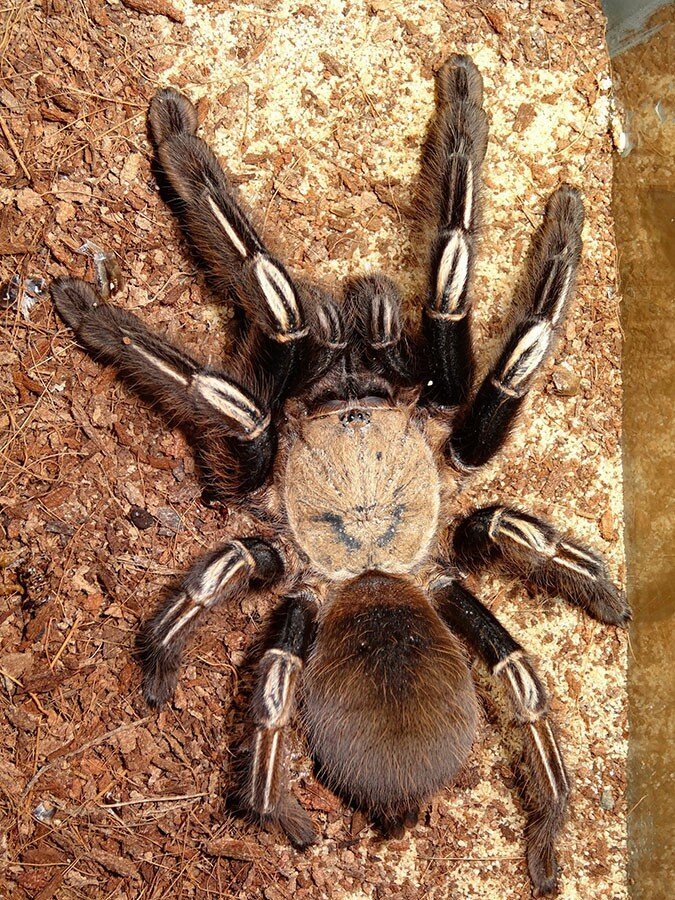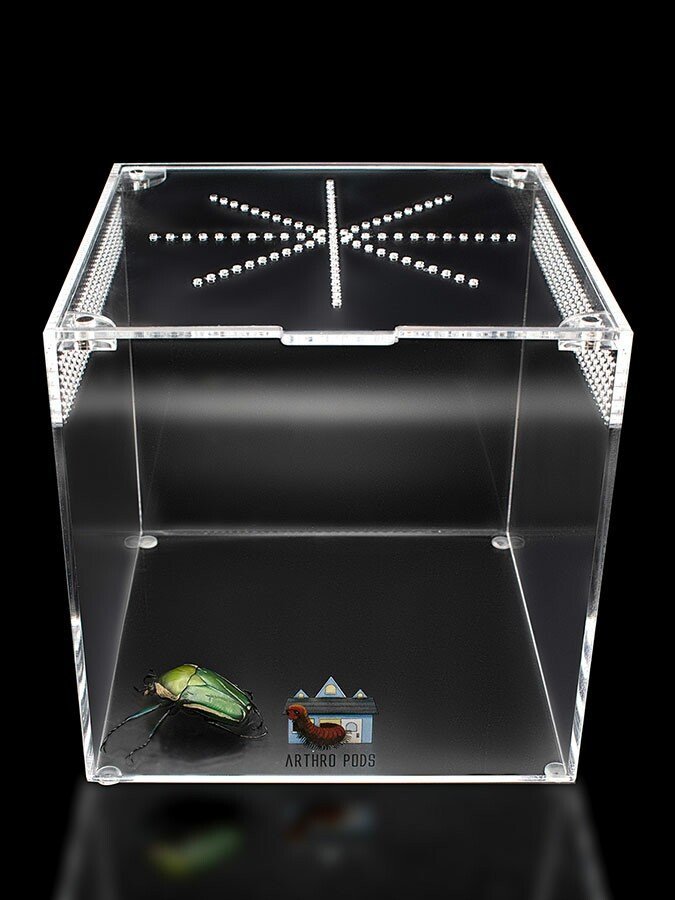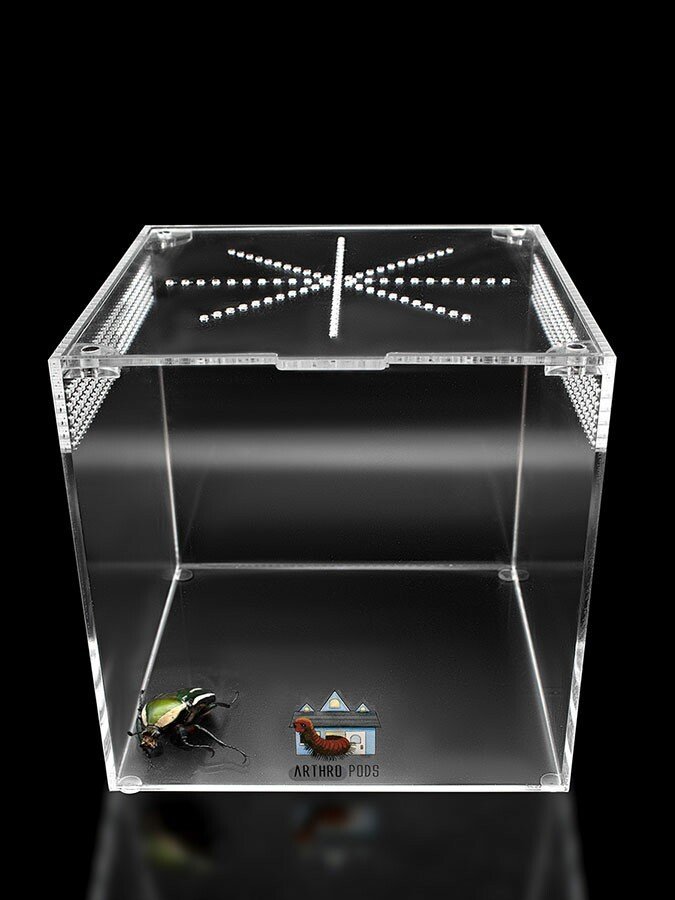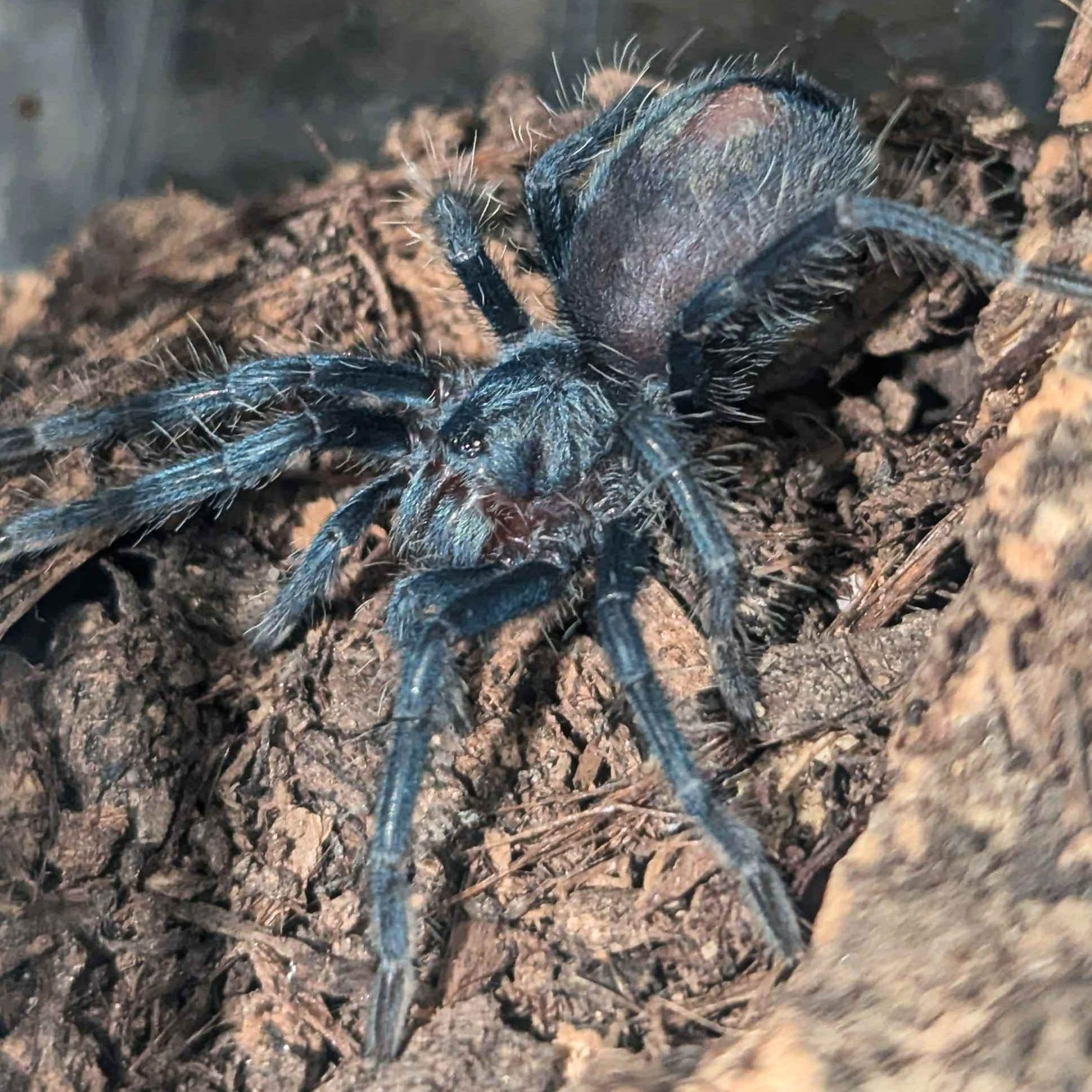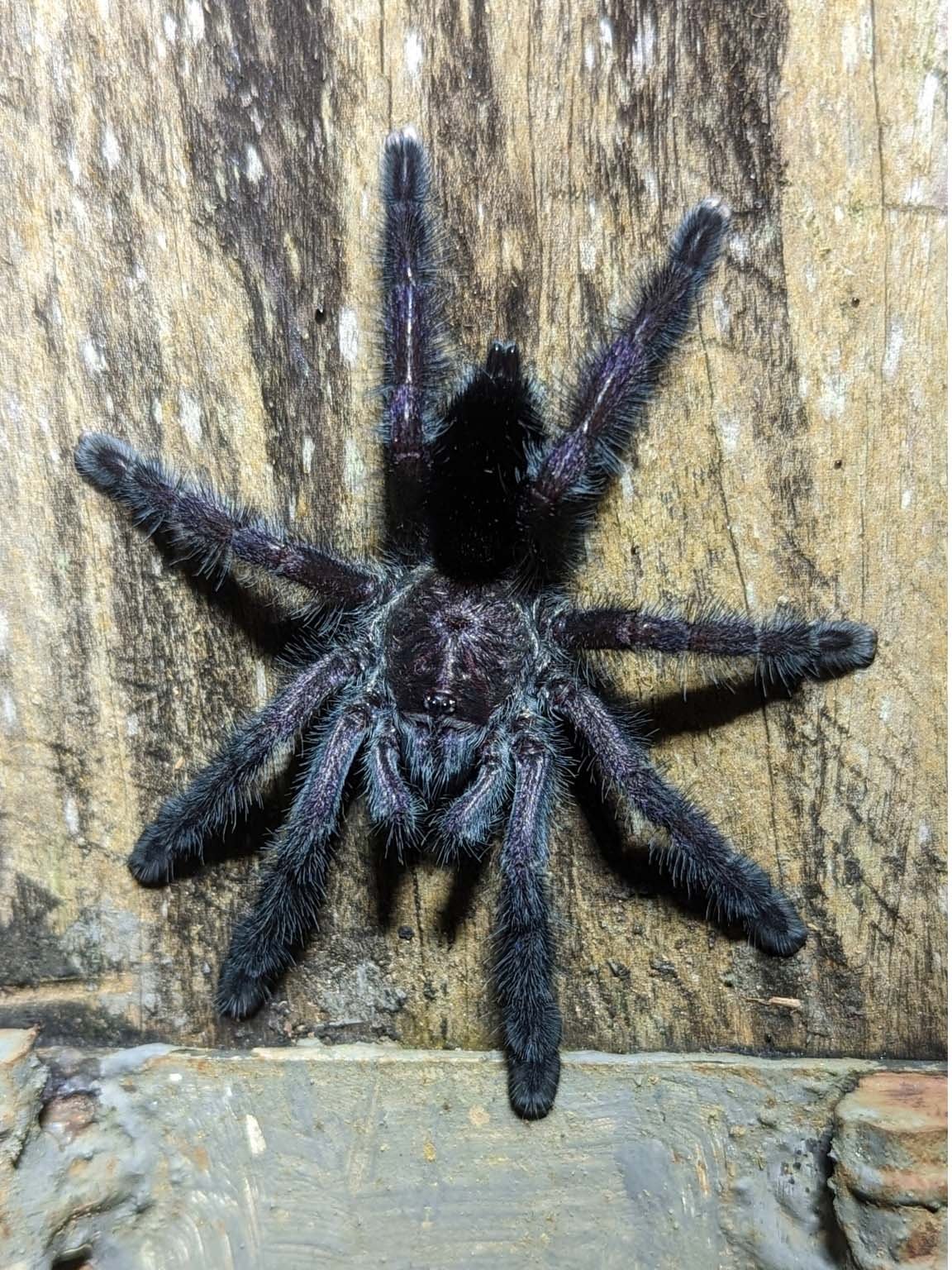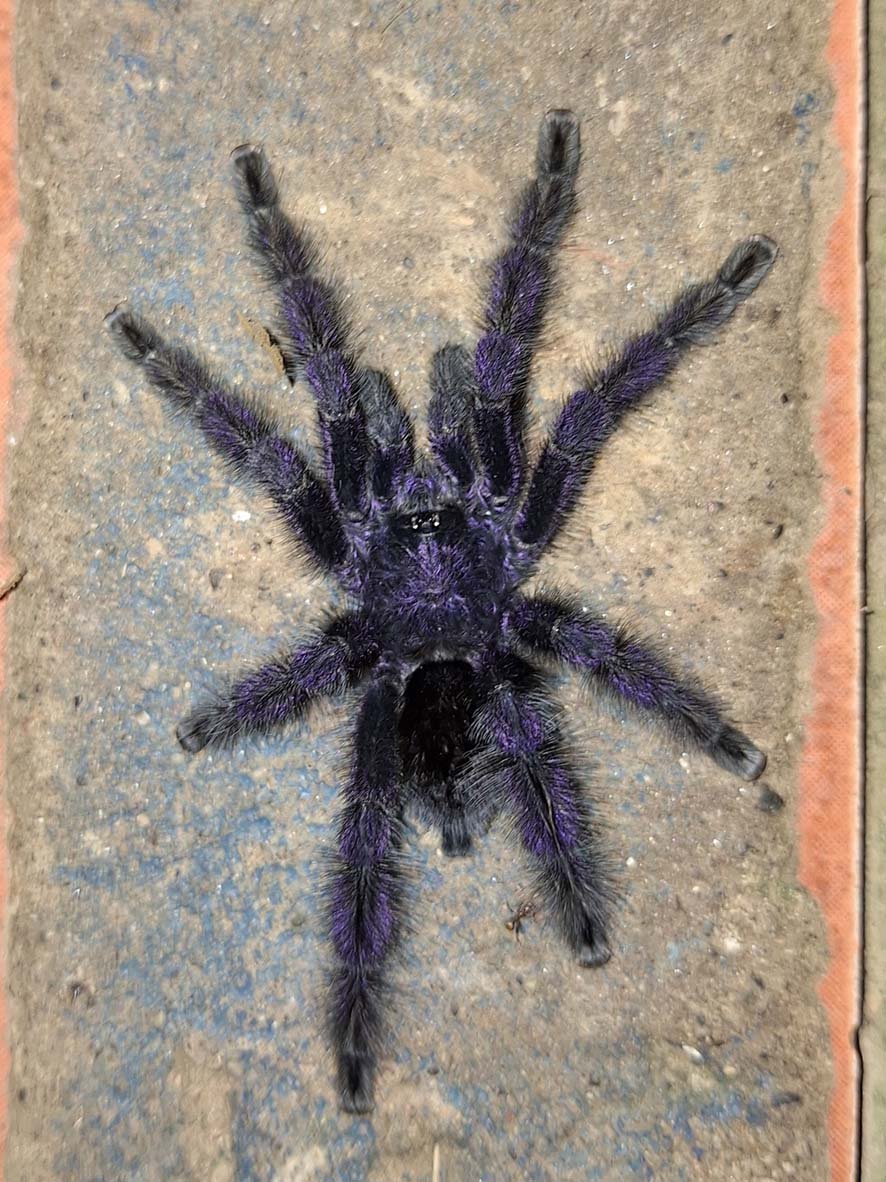Ephebopus murinus
In our opinion, the Skeleton Leg Tarantula is one of the world's top three best fossorials species. Suppose you ostensibly buy a pet box of soil until you see the spider. In that case, you want the coolness factor, beauty and personality, and the Skeleton Leg Tarantula, which oozes each significantly. The "skeleton" pattern against its black coloration makes them the absolute goth kids' dream. Their "‘spicy" demeanor is all show and no sizzle, meaning they are far more apt to bolt into their burrows than even bother biting you. If you’ve managed to upset them, the urticating hairs on their pedipalps will gladly scare you to death when they strike you, which hurts due to the hairs. However, this is far better than a bite. They are intricate webbers, so these are very commonly put in bone and graveyard-themed enclosures. Reducing the amount of substrate will encourage more remarkable and elaborate webs.
In our opinion, the Skeleton Leg Tarantula is one of the world's top three best fossorials species. Suppose you ostensibly buy a pet box of soil until you see the spider. In that case, you want the coolness factor, beauty and personality, and the Skeleton Leg Tarantula, which oozes each significantly. The "skeleton" pattern against its black coloration makes them the absolute goth kids' dream. Their "‘spicy" demeanor is all show and no sizzle, meaning they are far more apt to bolt into their burrows than even bother biting you. If you’ve managed to upset them, the urticating hairs on their pedipalps will gladly scare you to death when they strike you, which hurts due to the hairs. However, this is far better than a bite. They are intricate webbers, so these are very commonly put in bone and graveyard-themed enclosures. Reducing the amount of substrate will encourage more remarkable and elaborate webs.
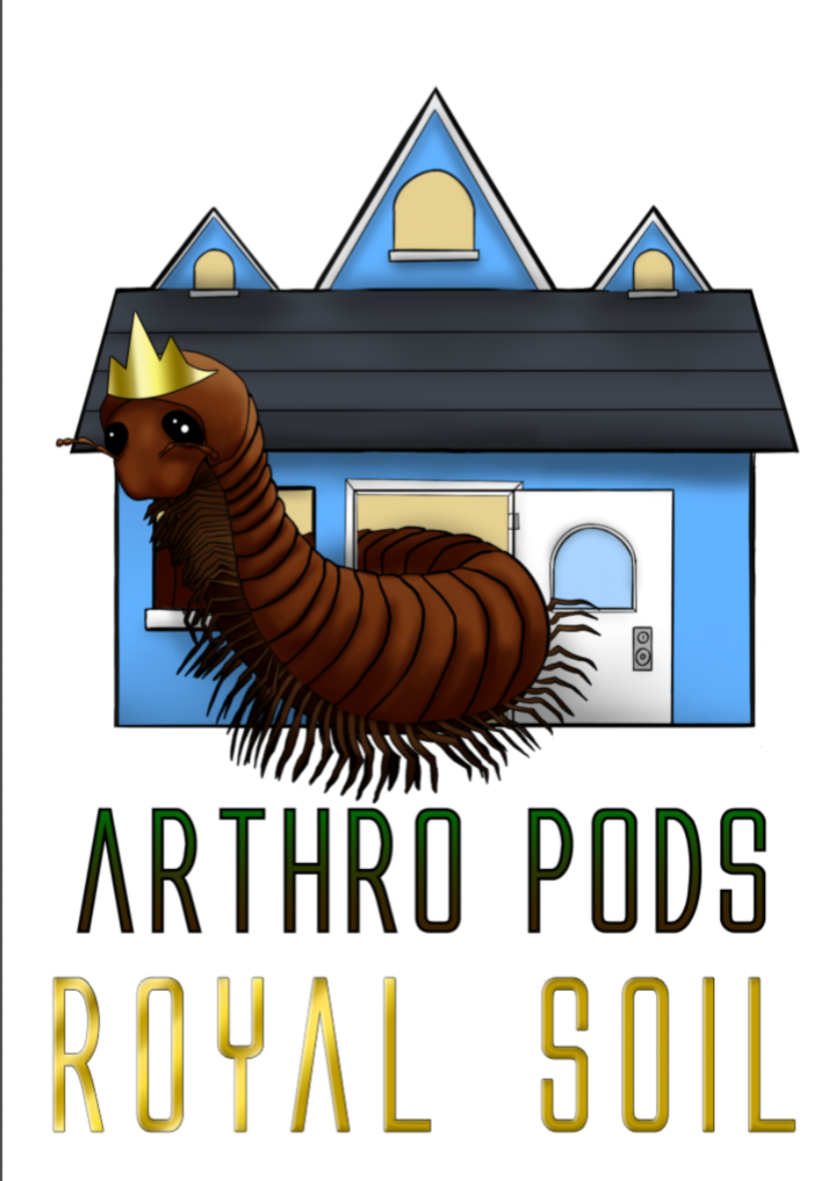
In our opinion, the Skeleton Leg Tarantula is one of the world's top three best fossorials species. Suppose you ostensibly buy a pet box of soil until you see the spider. In that case, you want the coolness factor, beauty and personality, and the Skeleton Leg Tarantula, which oozes each significantly. The "skeleton" pattern against its black coloration makes them the absolute goth kids' dream. Their "‘spicy" demeanor is all show and no sizzle, meaning they are far more apt to bolt into their burrows than even bother biting you. If you’ve managed to upset them, the urticating hairs on their pedipalps will gladly scare you to death when they strike you, which hurts due to the hairs. However, this is far better than a bite. They are intricate webbers, so these are very commonly put in bone and graveyard-themed enclosures. Reducing the amount of substrate will encourage more remarkable and elaborate webs.
What’s the ideal diet for a Skeleton Leg Tarantula?
All Tarantulas can eat a variety of feeders. We recommend crickets, dubia roaches, silkworms, horned worms occasionally, and a superworm or mealworm as the occasional treat!
How should I keep a Skeleton Leg Tarantula?
We recommend starting with a small Fossorial Fissure enclosure for this particular creature. When they are about ⅓ the size, you will want to upgrade to a medium or large Fossorial Fissure enclosure. As slings, feed them once a week. Twice if their opisthosoma (abdomen) looks small, but if the opisthosoma is wider than their prosoma (pneumothorax), then wait a couple of days to feed. For juveniles or adults, stick to feeding once a week, nothing larger than their opisthosoma. Make sure to keep a full water dish at all times; wider and deeper is fine. Your tarantula can’t drown; they float on water.
How long could a Skeleton Leg Tarantula live?
Females are stated to live between 13-15 years, and males, on average live between 3-4 years. These are the best estimates from multiple sources.
Some photos provided by iNaturalist, credit to:
Guillaume Delaitre, some rights reserved (CC BY)
